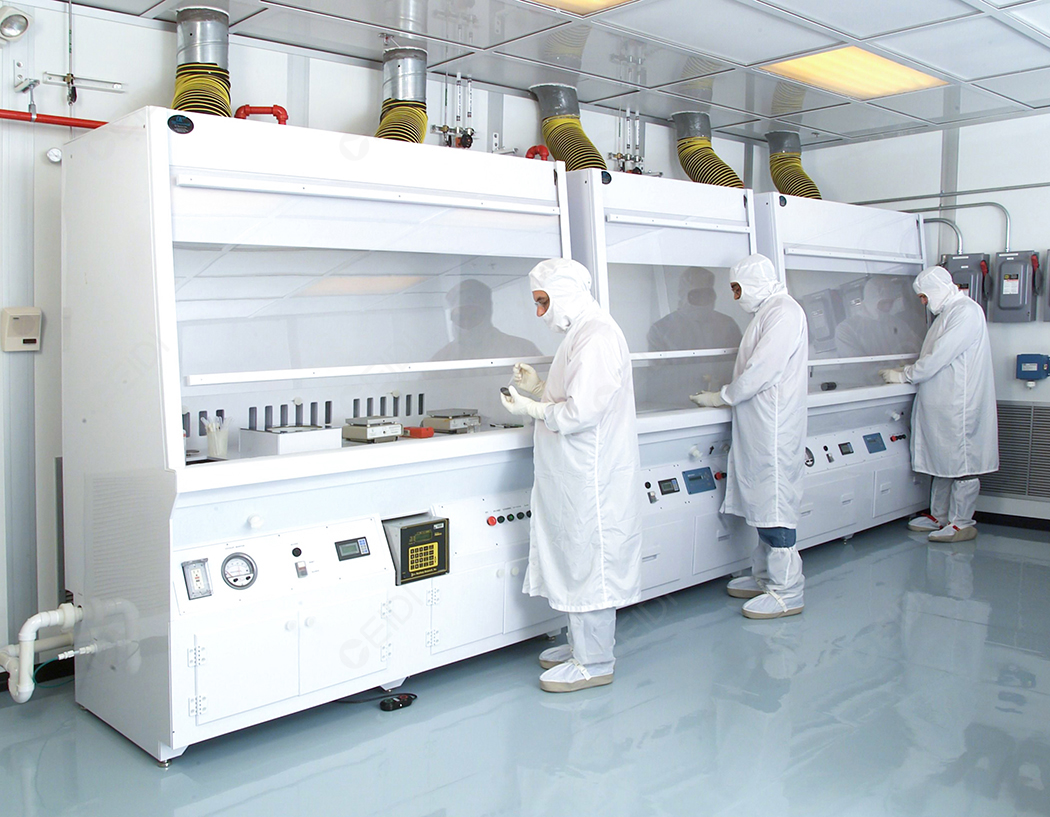Welcome to the official website of Xidi laboratory, the laboratory design and decoration recognize Xidi!
|
|
Home >> News >> Technology
文章出处:Technology|阅读量:985|发表时间:2021-03-18
When Xidi looked at the search needs of past customers, I found that many wanted to know what molecular laboratory is? How to build and design molecular laboratory? So how exactly is the molecular laboratory defined? In fact, what we usually call the molecular laboratory decoration design is just a laboratory in the sense of ordinary scientific research, and there are no hard requirements. For clinical hospitals and other molecular biology laboratories that need to be accepted and listed by clinical inspection centers at all levels, they are usually constructed according to the design and decoration standards of "PCR laboratories". The molecular biology laboratory is mainly used for DNA extraction and identification, PCR amplification, and molecular hybridization experiments for animals, plants, microorganisms, etc.
First of all, CEIDI needs to popularize a basic concept for everyone. The construction standards for different laboratories are not distinguished by industry, but by function and characteristic. For example, constant temperature and humidity laboratories, sterile laboratories, P2 laboratories, testing laboratories, etc. To clarify this concept, today's molecular laboratory decoration design knowledge sharing will mainly focus on three points: the construction plan of the molecular biology laboratory, the construction basis of the molecular diagnostic laboratory, and the zoning layout of the molecular pathology laboratory.
I.The construction layout plan of the molecular biology laboratory
In order to avoid the possibility of cross-contamination between the various experimental areas, it is advisable to adopt a full-fed full-exhaust air organization form. At the same time, the ratio of air supply and exhaust air is controlled to ensure the pressure requirements of each experimental area.
1.Reagent storage and preparation area: There are no strict requirements for the control of airflow pressure in this area.
2.Specimen preparation area: Positive pressure is relative to the adjacent area. Avoid unnecessary walking in this area.
3.Amplification reaction mixture preparation and amplification area: the negative pressure is relative to the adjacent area.
4.Amplification product analysis area: negative pressure is relative to the adjacent area.
5.Laboratory supporting facilities: According to the different experimental contents of each laboratory, it is equipped with corresponding equipment and instruments, such as ultra-clean workbenches, biological cabinets, centrifuges, samplers, etc.
II.Basis for the construction of molecular diagnostic laboratories
1.The construction and decoration of molecular diagnostic tests are mainly based on "Medical Institution Management Regulations", "Medical Institutions' Clinical Laboratory Management Measures", "Medical Institutions' Clinical Gene Amplification Laboratory Management Measures", "Pathology Department Construction and Management Guidelines" and other documents.
2.Medical institutions shall uniformly manage molecular pathology testing items and conduct testing in standardized molecular pathology diagnostic laboratories.
III.Zoning layout of molecular pathology laboratory
1.Pathology business functional area.
① Distinguish between clean area and polluted area
②Reception and specimen reception area, specimen preparation area, gross examination and material collection area, dehydration processing area, section preparation area, cytology processing area, special staining and immunohistochemistry work area, molecular pathology work area, reagent and consumable storage area , Specimen preservation area, medical waste treatment area, medical staff office area, film reading discussion area, library and other basic functional areas.
③In the case of remote pathological diagnosis, a remote diagnosis room should also be set up.
2. Auxiliary function area. Settlement of medical expenses, as well as instrument consumables and disinfection supply room, etc.
3. Management area. Pathology archives, information, laboratory quality control and safety management departments.
4. Basic equipment. Mainly include the following equipment:
①Conventional equipment such as centrifuges, sample dispensers, disinfection equipment, biological safety cabinets, specimen cabinets, section cabinets, wax block cabinets, gross photography devices, digital section scanning systems, optical microscopes, etc.;
②At least one viewing microscope with more than 5 people;
③Molecular pathology diagnosis equipment: such as polymerase chain reaction (PCR) room and corresponding equipment, nucleic acid extraction equipment, molecular hybridization instrument, low temperature centrifuge, fluorescence microscope, etc.;
④Professional pathology equipment: closed automatic dehydrator, wax block embedding machine, HE automatic staining machine, spreader, paraffin slicer, automatic liquid-based thin-layer cell preparation equipment, cryostat (optional), Fully automatic immunohistochemical staining machines, etc., professional pathology equipment must have a medical device registration number at the "National Food and Drug Administration" level.
